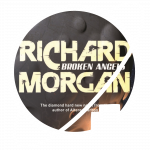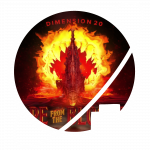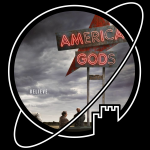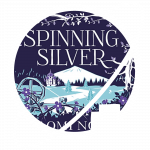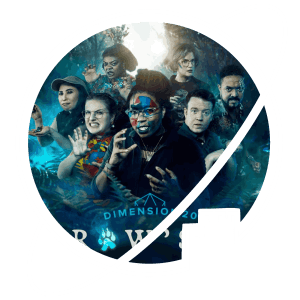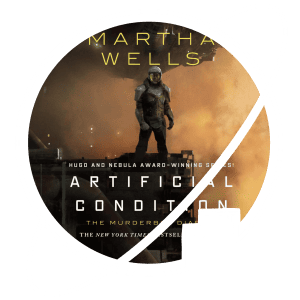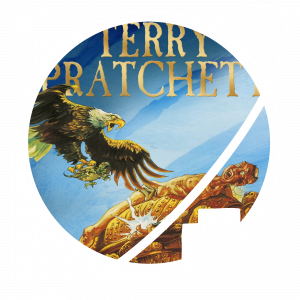Welcome to the Escape Velocity Collection!
We are an opinionated group of friends reviewing all sorts of fantasy and science fiction media. Don’t forget to get to know the curators and visit our curated Collection, where we discuss the stories that never cease to transport us to another world.
Will you escape with us?
LATEST POSTS:
- Book written by Richard Morgan
- Published 28 February 2002
- Part one in the Takeshi Kovacs trilogy
In a violent cyberpunk future in which your consciousness can be downloaded into a machine in your neck and bodies have become interchangeable, Takeshi Kovacs wakes up in prison on Earth, far away from his home on Harlan’s World, sleeved in a new body. He is released to solve the murder of Laurens Bancroft, a man rich enough to have survived his own death.


In my review of Netflix’ adaptation of this book, I admitted to the sin of (accidentally) having watched it before I read the book. It’s a thing I seldom do, and it makes for an interesting perspective. I have updated my review of the series with a few lines to reflect how my opinion has changed after finally having read the book as well.
Moving on to the book proper, I must first of all repeat that Altered Carbon has a really interesting premise: in the not too distant future, humanity has figured out a way to convert the human mind into data, which is stored in a little device in the neck. Upon the death of one’s body, the machine, or stack, can be retrieved and the mind reinserted into a new body (called a ‘sleeve’). Morgan uses this relatively simple innovation to great effect: Not only has he created a biotech-Cyberpunk setting that feels surprisingly fresh despite leaning (heavily) into some of the genre’s clichés, he also makes the premise a pivotal part of the novel’s plot and the background of each of the characters you meet, making you consider what such a (bio)technological development could mean for people from all walks of life.
Beyond the intriguing setting, the book is actually a classic whodunnit, with an anti-hero detective who teams up with sharp edged policewoman to solve the murder of one of the world’s richest men. Here, too, the book does not shy away from using the classic tropes to populate the pages, harkening back to the likes of noir detective stories. Dissected like this, the book appears to lose some of its shine – but I do want to stress that the cyberpunk setting and detective story mash together really well.
I think Altered Carbon is definitely worth a read. I’m not rating the book higher than I do, because while I realise that he is supposed to be really badass, the main character never quite clicked for me. Perhaps he’s just a bit unoriginal, perhaps the drinking, smoking, somewhat nihilist remorseless killer is just not quite my type of guy. Perhaps it is just that I have never felt particularly attracted to crime or gangster stories. Spending as much time with him as you do, I felt Takeshi Kovacs started to grate on me a little by the end of the book.
Overall though, the setting really makes this book shine. Even if the plot (or even the characters) were not my favourite, I really enjoyed the way in which Morgan keeps throwing well thought-out curveballs at you on the basis of his excellent premise. If you’re interested in original cyberpunk settings, detective stories, or biotech sci-fi (and you don’t mind blood splattering off the pages), I’m sure you’ll enjoy Altered Carbon.
A final note to those who’ve already watched the show: should you read the book? Honestly, you’ve seen most of it; there’s some discrepancies, but the setting is well converted, and most of the main plot beats are the same. You did miss out on my favourite character from the book though: if you do pick it up, look out for Trepp!
Tagged:
- Card game designed by Don Eskridge
- Artwork by Luis Francisco & Weberson Santiago
- Published by Indie Boards & Cards
- Released in 2021
- 4-10 players
- Playing time: 30 minutes
Quest is a social deduction card game set at the court of King Arthur. Players are divided into two teams: the loyal servants of Arthur and the evil minions of his foe Mordred. The good guys try to get three victorious ‘quests’ to win the game, and the bad guys try to prevent that. A quest is successful when all participating players play a ‘success’ card. When there is at least one ‘fail’-card, the quest fails. Players constantly try convince, bluff and deceit the others that they are, truly, of good will.
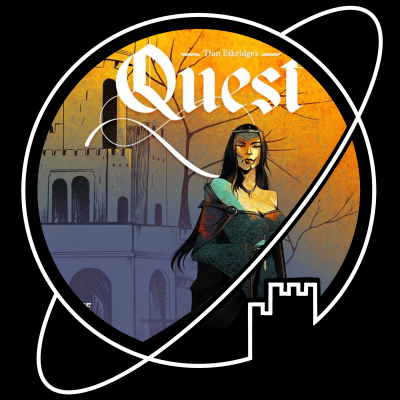

Quest is a spiritual successor of the games The Resistance and Avalon from creator Don Eskridge. The Resistance and Avalon are essentially the same game with a different flavor – Resistance is vaguely cyberpunkish in theme while Avalon is Arthurian legend – and a few tweaks. Quest improves (slightly) upon its forebears, but in its core it is very much the same game.
I had played The Resistance before and remembered it as a fun, simple social deduction game. It was a bit slow, because every round players had to vote on the team that would play the success/fail cards. Quest runs a bit more smoothly, because the round leader decides on the teams without voting. I think it is a good adjustment for the flow of the game, although I did like the team-voting as something original and extra tactical.
Some other changes in comparison to the earlier games: you can play with minimum 4 instead of 5 players (yay!); with a magic token the round leader can force a character to play a success card, although Morgana herself (one player) can ignore the token (nice double twist potential); the round leader chooses the next leader instead of passing it on clockwise (yay!); players can only be round leader once; and finally: the Final Quest. If the Evil team manages to win 3 quests before the Good team does, the Good team has a chance to name all Evil characters and still win the game. It is a crazy, all-or-nothing rule that I normally don’t endorse, but in this game it works brilliantly. Tensions rise, everyone tries one last time to present their theory and the fate of the world, the game and – perhaps most of all – your friendship hangs in the balance.
I liked the game. It is basic, but it works. It does not need much more. It is no magical sword in a mysterious stone. But it is good.
Tagged:
- Dungeons and Dragons Livestream/Webseries
- Produced by Dimension 20 for Dropout.tv
- Released in 2018
- DM'd by Brennan Lee Mulligan
- Starring Ally Beardsley, Emily Axford, Zac Oyama, Lou Wilson, Brian Murphy and Siobhan Thompson
In this D&D web series, we follow a group of kids during their first year at Agueforth Adventuring Academy, a high school where kids learn to be classic D&D adventurers.
Fig has recently found out her elf father is not her real father, and she’s going through a rebellious phase. Gorgug is a gentle half-orc barbarian whose adoptive parents are gnomes. Adaine comes from a wealthy elven family, and is only going to Agueforth because she had a panic attack during her entrance exam for a fancy school. Fabian is the typical high school jock, the son of a ruthless but loving pirate father and a day-drinking elven mother. Kristen comes to realise that perhaps the god she has worshipped day and night for all her life isn’t quite all he seemed. And Riz is a wanna-be detective, desperately trying to solve the disappearance of his baby-sitter.

(This review relates to both season one of Fantasy High, as well as Fantasy High: Sophomore Year)
The cast of Fantasy High is absolutely hilarious. Each and every player is a master of improv, and they all really respect each other, which means everyone gets their moments, and the show as a whole is, apart from being absolutely hilarious, a delight to watch.
One of the things I enjoy the most about the show is how the player’s actions truly shape the story. The characters are truly the centrepoint of the narrative. Not just the player characters, the same goes for the NPC’s.
Brennan Lee Mulligan creates some of the most amazing NPC’s ever. Truly. The man is a master at improv. Whatever the cast throws at him, he manages to twist to his liking and slap them back in the face with. Brennan’s world is populated with lots of funny characters, but make no mistake: they often have quite a bit of depth as well. A personal favourite is Jawbone the guidance counselor (there’s a scene with him that legitimately makes me cry every time), and an absolute fandom-favourite is Fig’s sad elf dad Gilear.
I would recommend Fantasy High to anyone who likes the idea of a D&D livestream but doesn’t want to invest 100 hours into a campaign. Episodes are one to two hours long, and the series has 17 episodes. They’ve also done a second series, which is currently only available on Dimension 20’s own streaming platform Dropout.
People who enjoy “quirky” fantasy like the work of Terry Pratchett will definitely enjoy Brennan Lee Mulligan’s worldbuilding as well.

(This review relates only to the first season)
I have confession to make that I know will shock some of you: I tried to watch Critical Role, and found it massively underwhelming.
Don’t get me wrong, I understand it appeals to some people. I am more than a little surprised it became such a phenomenon though. That is not because it doesn’t look like a fine D&D adventure, or because the players aren’t fun to watch. It is just that the content – basically just playing your D&D session right back at us, no edits, no adjustments for viewer experience – just doesn’t seem like particularly appealing content (at least to me).
Result: I figured this type of show was just not for me, and I moved on. I’ve seen a couple of attempts since (mostly other content creators I follow trying their hand at D&D shows), and those tended to be even worse.
So when Lotte recommended I watch Fantasy High, I think it is fair to say I was… rather sceptical. ‘It’s different!’ she said. ‘It’s snappy! It’s fun!’.
‘A snappy D&D show?’ I thought. ‘Is that even possible?’
As it turns out, more so than expected (one could wonder, though, what it says about the genre that 2 hour episodes makes for a ‘snappy’ experience).
Fantasy High exceeded my expectations in many other ways as well. It is exactly the kind of content that I expected not to care for, but as it turns out, I actually had a lot of fun watching it. Episodes are shorter than other tabletop roleplaying shows, content is edited down, little drawings are added for immersion, there is less downtime between relevant roleplay or combat, and the parody setting works surprisingly well. Perhaps most importantly, for someone who tends to dislike most comedy, the humour struck a chord with me.
I don’t want to spoil too much – Lotte and I had a great conversation on the show in our Collection post – so if you want to know more, give that a click. In short, I think the fact that I liked Fantasy High despite my biases is a recommendation in and of itself. My only caveat – and Lotte doesn’t share this opinion, so take it with a grain of salt – I think the show works best for people familiar with tabletop RPGs and fantasy tropes.

(This review relates only to the first season)
I have little to add to the (justified) praise of my fellow curators; Fantasy High is a highly entertaining and (relatively) fast-paced D&D show with at times surprisingly heartfelt scenes.
For someone who absolutely loves the theatre-like experience Critical Role’s epic format delivers – full of emotional ups and downs – Fantasy High won’t quite scratch all the same itches. However, Fantasy High‘s cast full of humorous people who all excel at improv certainly deliver a similarly masterful performance. Brennan Lee Mulligan’s DM skills are astonishing. Not only does he come up with unique NPC’s, a flavorful setting, intriguing mysteries and truly amazing battle scenarios (which get visualized by intricate maps created by the crew), but he almost effortlessly finds ways to let his talented players shine. On a semi-related note, I quite enjoyed his impressions of comparative religion scholars.
In summary, Fantasy High is definitely something every D&D (and urban fantasy) fanatic should at least try their hand on!
Tagged:
Robin
Check out our reviews of the media recommended in this post here:
It’s starting to get cold again here in the Netherlands, so looking ahead to the coming months I thought I would do this winter-themed book tag by MarissaWrites, to give you some tips for books that will get you through the winter.
Falling Snow: The colors of winter are muted. Choose a book that has whites, light blues, and grays on the cover.
I really love this cover of Spinning Silver by Naomi Novik. It is a very wintry book as well, so it fits in perfectly with this tag.
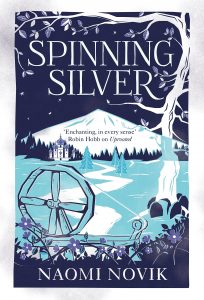
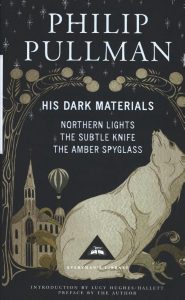
Crackling Fires: Colder weather makes for the perfect time to sit by a crackling fire in the fireplace. What book is the best to curl up next to a warm fire with?
His Dark Materials by Philip Pullman is the perfect trilogy to get you through the long winter days.
Ice Storm: Winter storms can be brutal. What book do you love that takes the characters through a brutal season?
The Snow Child by Eowyn Ivy is a beautiful book about resilience and hope that really manages to make you feel the brutal cold of the Alaskan winters through its pages.
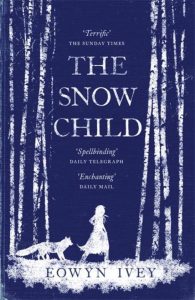
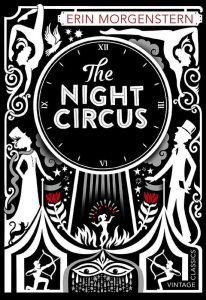
Winter Wishes: Spending more time indoors allows for more time to dream and wish. What character is living a life that you dream about?
While I love reading about exciting adventures, I rarely feel like I’d want to live through them. However, I would give a lot to be able to visit Erin Morgenstern’s Night Circus for an evening or two.
Hot Cocoa: There is nothing like a hot cup of cocoa during the winter, as adults we often under estimate it. What book do you think should be the next big thing?
Tales from the Inner City by Shaun Tan is a strange and beautiful book of short stories about the relationship between humans and nature, which deserves to get more attention.
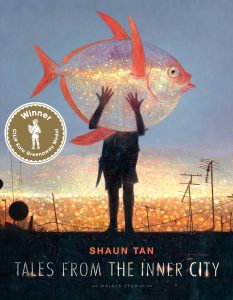
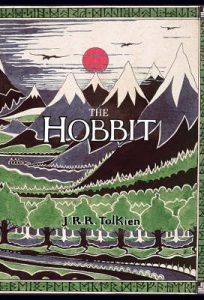
Lip Balm & Lotions: Soothing dry skin is part of the winter for many. What book is full of soothing & comforting words?
What’s more comforting than (re)reading an old and beloved classic? Tolkien’s The Hobbit is perfect for this.
Peppermint Mocha: What is your go to winter food or drink for those reading marathons of winter?
Around this time of year there’s only one appropriate snack: pepernoten!

Hopefully this list has given you some suggestions you weren’t yet familiar with! If you do read any of these books, let us know what you thought of it on one of our social media channels.
- Book written by Andy Weir
- Published 14 November 2014
- Standalone
Jazz Bashara lives in Artemis, earth’s first colony on the moon. She is also poor, a petty criminal and a deep disappointment to her father, who is a well-respected member of the community. In his eyes, Jazz is capable of so much more than her current job as a porter. He’s not wrong: when the chance at a really large stack of money comes by, Jazz is first in line to take the opportunity, legel or not. She soon realises, however, that the job got her entangled in a game with the future of Artemis itself at stake…
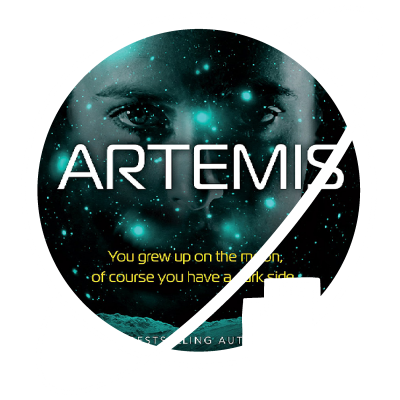

“Does for the moon what the Martian did for Mars!” is one of the cover blurbs for my version of this book. Which is fascinating, because, unlike most blurbs, it’s not just praise taken out of context – it’s not even praise at all. It’s just a description. In a blurb.
It’s surprisingly apt, however, and probably good marketing. Weir is known for The Martian, and if you liked that and want more, well, there is Artemis. You don’t need some snob from the Guardian telling you whether it is good or not. And the book is probably not intended for people who haven’t read The Martian yet.
So what am I doing, trying to review this book? It seems pretty simple – if you enjoyed The Martian, you’ll enjoy this one too, right?
Broadly speaking, that’s true. The story is told in a very similar talk-to-the-camera, snappy, sassy, upbeat, no-drama style. The characters encounter relatively similar types of issues in a relatively realistic near-future sci-fi world. Weir makes his usual blatant mistakes in international space law. It reads very easily, is very well-paced, is humorous at times. It gives you a good idea of what a city on the moon in the relatively near future might look like, just like The Martian did for a Mars mission. If those were elements you enjoyed in The Martian, you’ll probably enjoy them here too.
There are differences too, however, and generally speaking, The Martian comes out on top. For me, the most obvious difference is that while both stories are fiction, the challenges Jazz faces in Artemis felt a lot more made up than Watney’s struggle in The Martian. This is probably because the setting of a moon colony is simply a lot more flexible, meaning that Weir has some more leeway in making Jazz’ life easy or tough as the plot demands. The result is that while reading Artemis, I never really felt like Jazz’ life was in danger. And where Watney’s motivation is very clear from the very start of the novel, Jazz’ seems to be all over the place.
Perhaps more importantly, Artemis feels a bit like Weir’s publisher told him to just do the same trick in a new setting – and some of what made The Martian original and compelling is gone. Instead, we see other more traditional plot devices enter the stage – elements of romance, crime, politics, etc. Weir seems to have had Neuromancer‘s Freeside space station very firmly in mind when designing Artemis. It could be argued that Artemis sits in strange spot somewhere in between whatever The Martian is and traditional science fiction. That seems really cool, but didn’t work as well for me as The Martian did – but it might for you!
One final thought is that the book manages to sexualise Jazz’ character quite a lot, despite being told from her own perspective. I have nothing against a sex-positive main character, and perhaps this is just me being prudish, but some of the things Jazz thinks and does feel very ‘male gaze’. Make of that what you will.
in conclusion, you may have noticed that I referenced The Martian a lot in this review. That is because it is quite simply a very similar, but also clearly better book than this one. So if you haven’t read that one yet, go read it first and come back after. If you have read The Martian and liked the style, I am sure Artemis has something to offer for you as well. It is quick, witty, easy to read. Just don’t expect it to be equally good.
Tagged:
- Book written by Becky Chambers
- Published February 2021
- Part 4 of The Wayfarers Series
The Five-Hop One-Stop is a temporary stopover station for traveller’s awaiting their turn for the nearby wormhole. When an accident temporarily suspends all incoming and outgoing traffic, three strangers find themselves stranded with nothing to do but wait. Under the care of Ouloo, the host of the Five-Hop, they will discover many unexpected things about each other, and also about themselves.
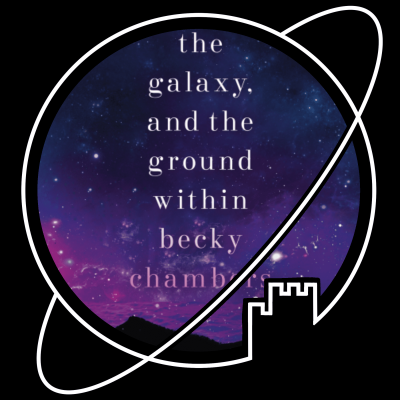

Becky Chambers’ books are generally known to focus a lot more on characters and their interactions than on plot, but this book might have hit a new extreme. Seriously: Nothing. Happens. At. All. That sounds exactly like the kind of story I would normally enjoy, and indeed: I (predictably) really liked it.
If you have read any of the other books set in this universe, this story will feel immediately familiar. It has all the hallmarks of a Becky Chambers novel: a diverse set of characters of different alien species, navigating their differences while being generally very wholesome and lovely. This book in particular puts a lot of emphasis on prejudice, bodily difference and privilege, but overall its message is one of hope.
While the four books set in this universe could be read in any order, I think you will enjoy this one more if you have read The Long Way to a Small Angry Planet first, because it gives a bit of context to some of the elements in this book. If you did not enjoy the first book, then I do not think this one will be more to your liking.
Tagged:
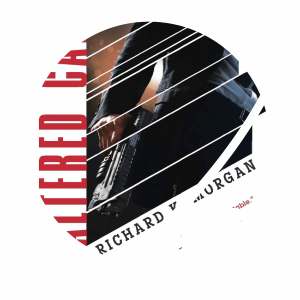
Review: Altered Carbon – Richard Morgan
In a future in which your consciousness can be downloaded into a machine in your neck Takeshi Kovacs wakes up in prison on Earth, far away from home on Harlan’s World, sleeved in a new body, to solve the murder of a man rich enough to have survived his own death.
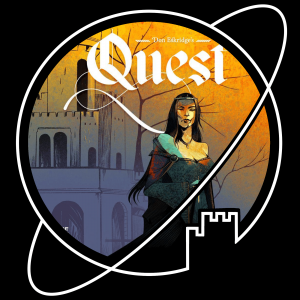
Review: Quest – Indie Boards & Cards
Reviewed by: Card game designed by Don Eskridge Artwork by Luis Francisco & Weberson Santiago Published by Indie Boards & Cards Released in 2021 4-10
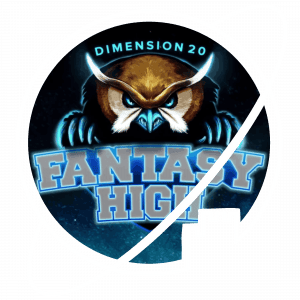
Review: Fantasy High – Dimension 20
In this D&D web series, we follow a group of kids during their first year at Agueforth Adventuring Academy, a high school where kids learn to be classic D&D adventurers. The so called “bad kids” meet each other in detention, and form an adventuring party that faces monsters and, occasionally, classmates.

Recommendation: Winter-themed Book Tag
Looking for books to get you through the winter? See what our curator Robin recommends!
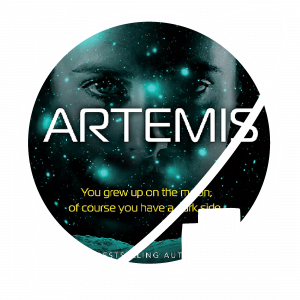
Review: Artemis – Andy Weir
Jazz Bashara lives in Artemis, earth’s first colony on the moon. She is also poor, a petty criminal and a deep disappointment to her father. When the chance at a really large stack of money comes by, she can’t pass up – but gets entangled in a game with the future of Artemis itself at stake.
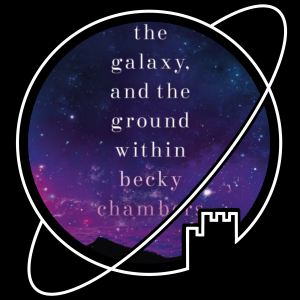
Review: The Galaxy, and the Ground Within – Becky Chambers
Part 4 of the Wayfarer series – The Five-Hop One-Stop is a temporary stopover station for traveller’s awaiting their turn for the nearby wormhole. When an accident temporarily suspends all incoming and outgoing traffic, three strangers find themselves stranded with nothing to do but wait. Under the care of Ouloo, the host of the Five-Hop, they will discover many unexpected things about each other, and also about themselves.









